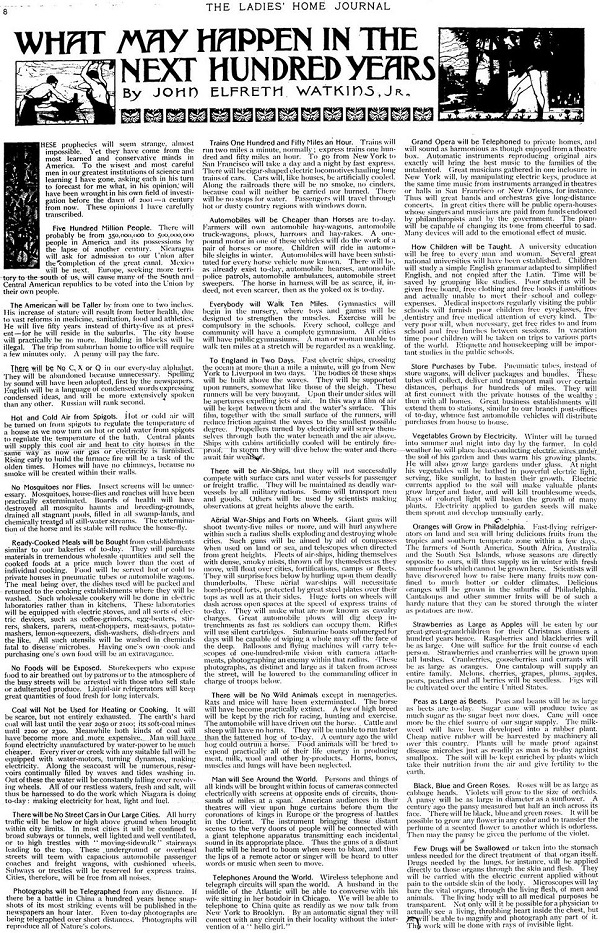This is yet another one from the “Back to the Future” series. Few things make me laugh harder than the predictions of futurologists from a few decades ago. The following article from 1911 is certainly no exception.

The introduction makes the rest of the article even more hilarious. “These prophecies (sounds kind of religious, doesn’t it?) […] come from the most learned and conservative minds in America.” Suddenly all of them felt like great-great-…-great-grandchildren of Nostradamus and started emitting fallacies. Good thing that they limited their foresight to the U.S. only. I don’t want to know how the rest of the world have looked like in their eyes.
According to those bright minds, the 2011 America should have incorporated Nicaragua and Mexico. Why not Canada, though? Is that too far-fetched? The population ranges between 350 and 500 million people. At the moment, not even their lower limit hasn’t been crossed. They went even further and made predictions about the health and height of the Americans, which were supposed to be greatly improved. Dare I say they were kinda wrong. Fast-food chains and cigarette manufacturers that have enormous profits stand as proof of my statement.
Language would also suffer some tremendous changes. The letters C, Q and X will be abandoned, since they’re useless. As expected, the futurologists were unequivocally mistaken again, and if you don’t trust me, read this sentence again. Along with these letters, mosquitos, flies and roaches would become extinct, too. This one is probably one of the most hilarious facts from the list. Cockroaches, fruit flies and flower beetles would all outsurvive humans in case of a nuclear blast (they wouldn’t live much longer after that, but still), and yes, there are plenty of insects around nowadays to prove those futurologists wrong. Rats, mice, horses and wild animals should no longer be our planet, if we were to trust their vision. It’s a fact that humans made sure that some species go extinct, but those three are not among them and there is still plenty of wildlife.
“To England in Two” was yet another wrong prediction. They presumed there will be terribly fast ships traveling at one mile per minute. Who needs ships when getting from L.A. to London takes 10:34, on average? By plane, that is. Their 150 mph trains are also a thing of the past, at least in other parts of the world. The U.S. will build a high-speed rail in California that will permit trains to exceed 150 mph. In the meantime, China recently revealed its 310 mph train.
The scanned newspaper page can be seen in its full glory here. There are plenty more predictions in that article to baffle you for days. My conclusion is that it is better to enjoy tech advancements as they happen instead of taking wild guesses to what will happen in a hundred years. I only hope we will unlock space travel.
If you liked this post, please check the 1994 tablet newspaper and the 1998 Internet.










